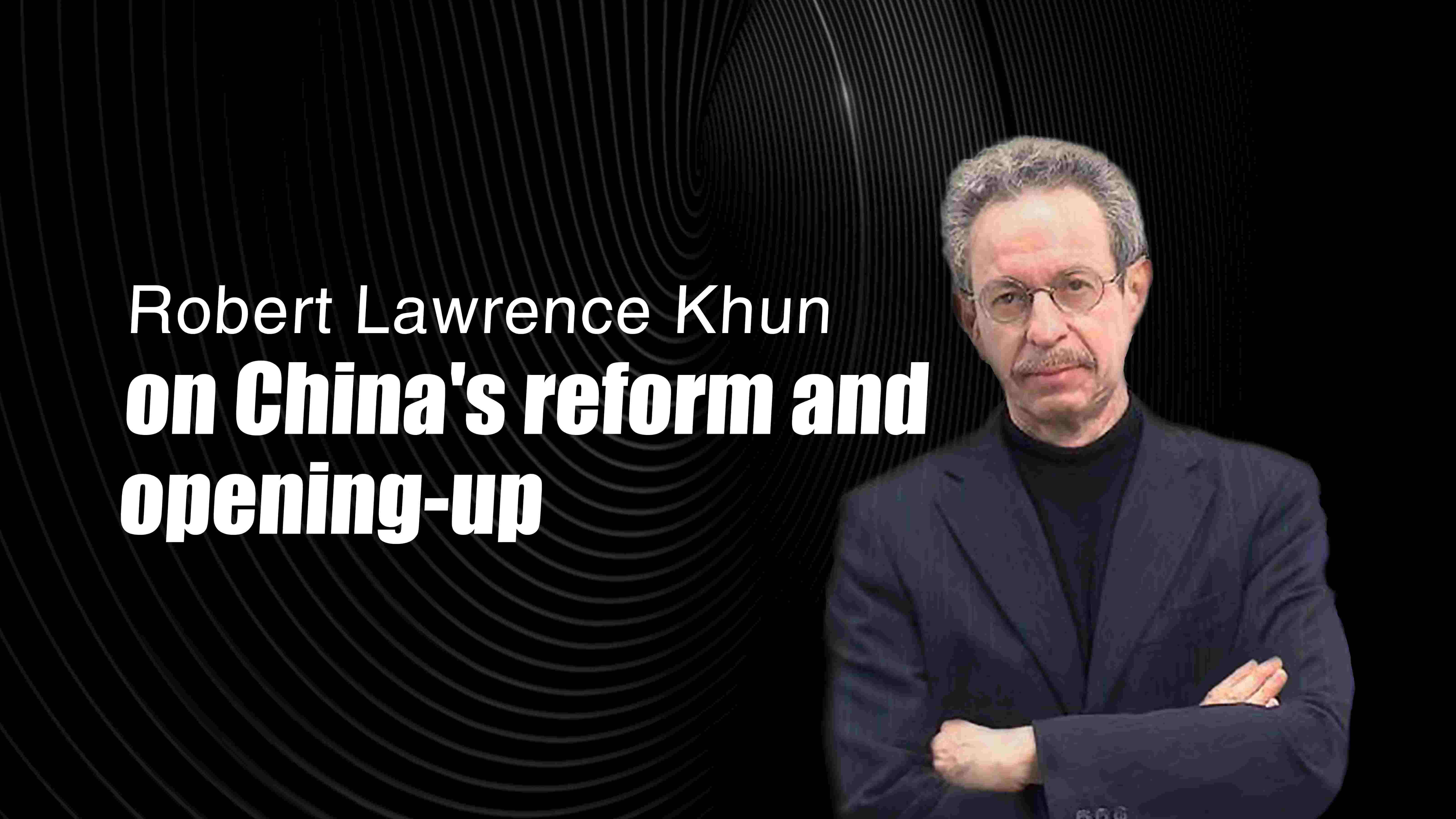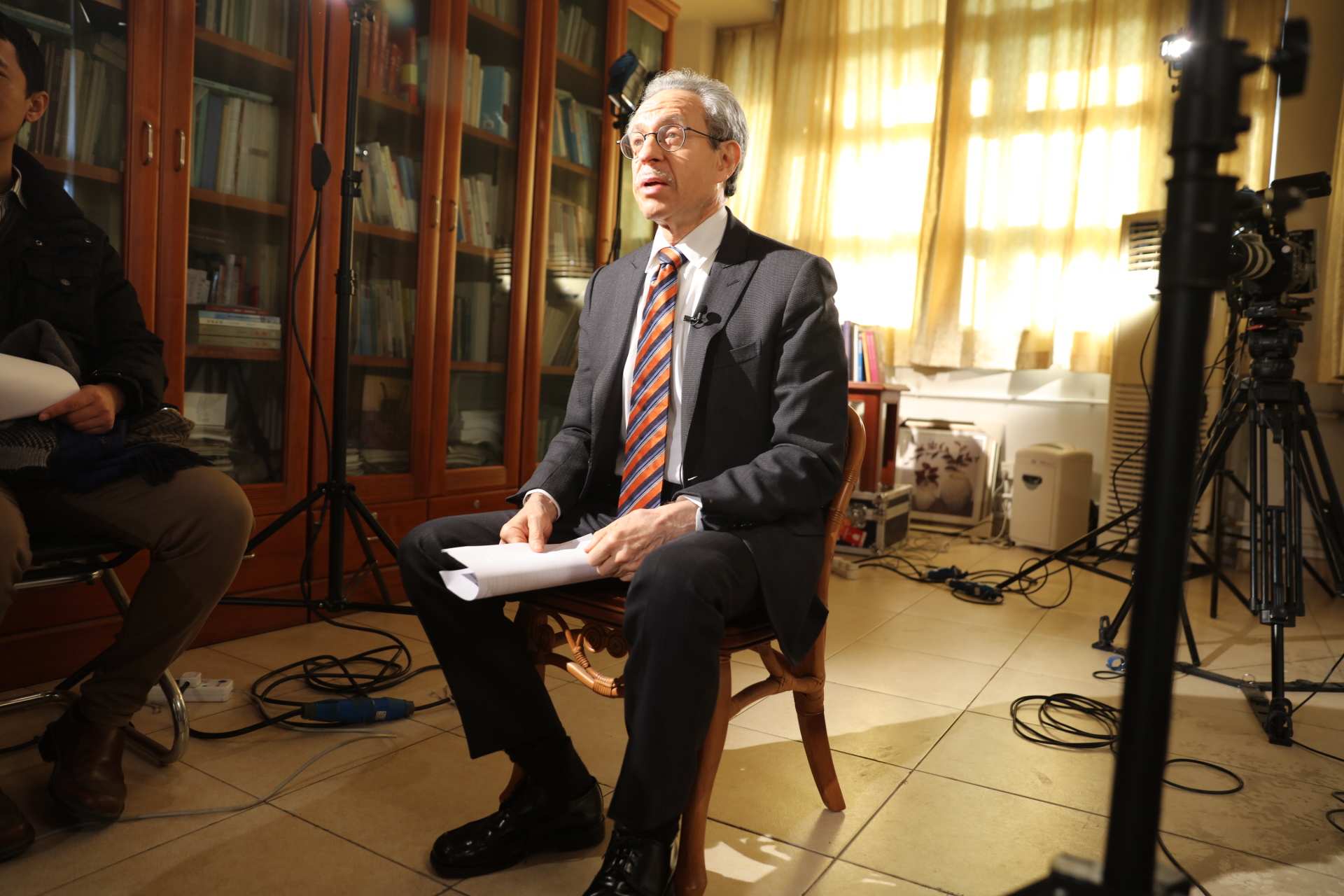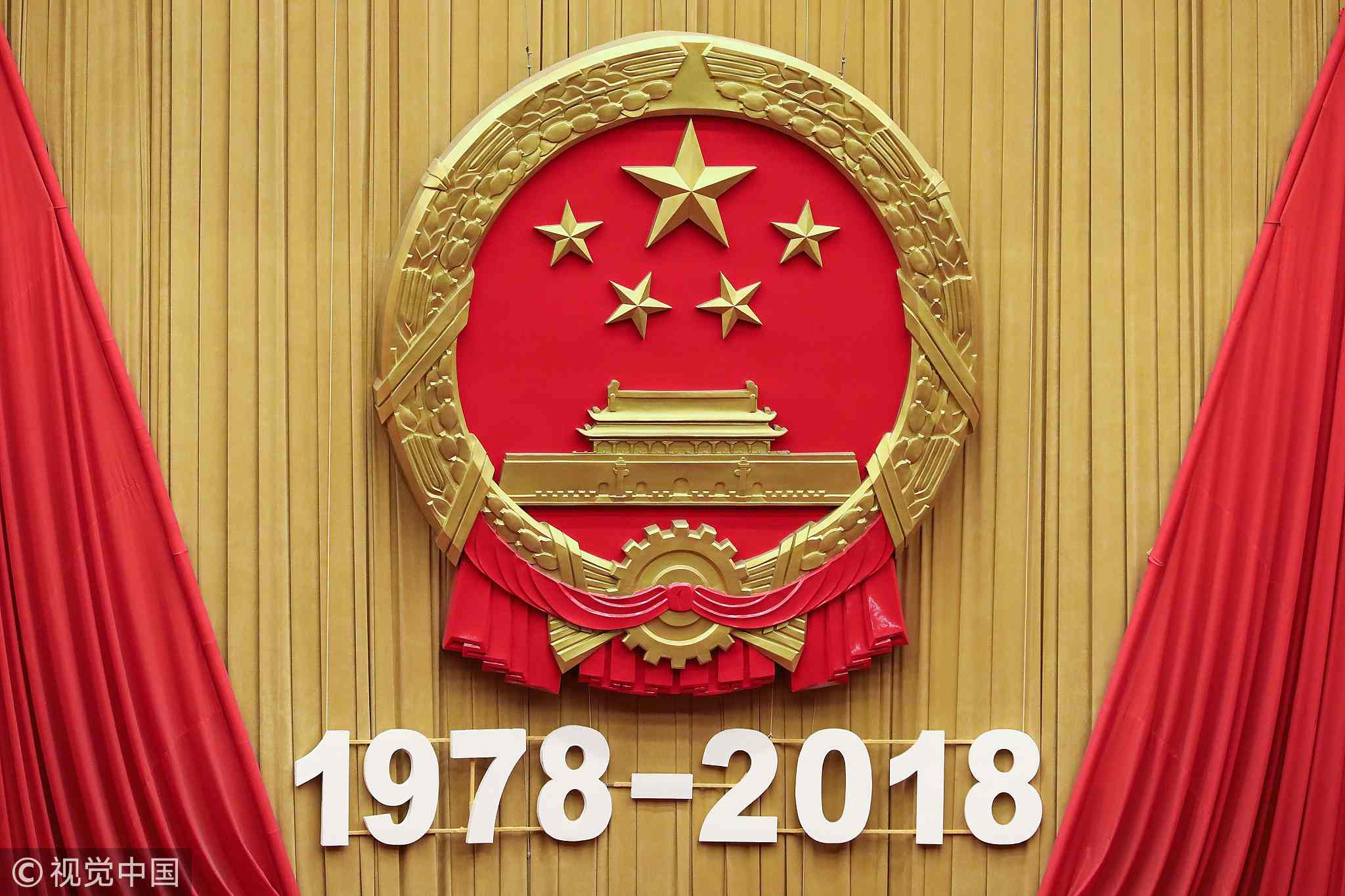
Opinions
22:40, 18-Dec-2018
Seeing China in Chinese terms: Robert Lawrence Kuhn on his career and China's reforms
Updated
21:55, 26-Dec-2018
CGTN
03:33

Editor's note: Dr. Robert Lawrence Kuhn is a CGTN anchor, a public intellectual, international corporate strategist and investment banker. He talks with CGTN Digital on how he ended up in China, his later decision to tell China's story and his take on China's reform and opening-up.
On December 18, China held a high-profile conference celebrating the 40th anniversary of the country's reform and opening-up.
One of the highlights of the conference is the awarding of friendship medals, which is dedicated to foreigners who have made outstanding contributions to China's cause of reforms in the past decades. Robert Lawrence Kuhn, CGTN host for the weekly news show "Closer to China," is one of the 10 international recipients.

Robert Lawrence Kuhn. /CGTN Photo
Robert Lawrence Kuhn. /CGTN Photo
Kuhn, originally a scientist and investment banker in the U.S., came to China in January 1989 at the invitation of the then State Councilor Song Jian to advise Chinese research institutes on matters pertaining to building a market economy in the country.
When he first arrived, he knew little about the country, nor could he have an inkling of an idea about what the future held for him in China. However, reflecting back, one of the things that made him decide to keep visiting China on a regular basis – even while continuing to build his merger and acquisition company in the U.S. – was the country's naive enthusiasm in its pursuit of development.
With its reforms in full swing, the post-1992 China was experiencing major transformations. However, by the middle 1990s, whenever Kuhn returned to the U.S. after one of his trips to China, to his deep frustration, he found that the misconceptions about China back home were enormous. These misconceptions, he explained were not just stories of China “doing bad deeds,” but affected virtually everything about the country. For example, many Americans imagined China in the 1990s to be how it looked like in the 1970s, with no modernity and full of backwardness. This experience would sow the seeds of his career in telling China's story.
In 2000, Kuhn sold his merger and acquisition business in the U.S. and started to devote himself to exploring China and engaging in international communications.

The National Emblem of the People's Republic of China is displayed during the 40th Anniversary of Reform and Opening-up celebration at the Great Hall of the People in Beijing, China, December 18, 2018. /VCG Photo
The National Emblem of the People's Republic of China is displayed during the 40th Anniversary of Reform and Opening-up celebration at the Great Hall of the People in Beijing, China, December 18, 2018. /VCG Photo
Thirty years of experience exploring the country, where he has not only engaged with a vast number of Chinese senior leaders and diplomats, but also had a closer look at what has been happening at the grassroots level, has enabled him to have a deep understanding of China's national policies and witness changes within Chinese society in all aspects and at all levels.
Kuhn is able to understand China in Chinese terms. When asked about his understanding of the country's success story in the past decades, he attributes it to party leaders removing ideological constraints, which, however, is “necessary but not sufficient.” He also pointed to the risk-averse nature of China's reforms, where measures start in certain geographical locations as experiments and always precede a large-scale or nationwide policy change.
On China's next stage of reforms, Kuhn believes that the structural guideline is clear, which includes maintaining socialism with Chinese characteristics and the primacy of the party. He highlighted the importance of innovation playing a key role in national economic development; the idea was highlighted in President Xi's speech in today's conference.
However, with “the low-hanging fruit" being accomplished, further reform and opening-up is in deep waters and more challenges lie ahead. Going forward, Kuhn points out that the specific areas that need changes are China's protection of intellectual property rights, the level of market openness as well as the government support of state-owned enterprises. In these areas, China is now facing mounting external pressure as well, which some within the country see as positive, as they believe external pressure enables the country to break through domestic vested interest.
(If you want to contribute and have specific expertise, please contact us at opinions@cgtn.com.)

SITEMAP
Copyright © 2018 CGTN. Beijing ICP prepared NO.16065310-3
Copyright © 2018 CGTN. Beijing ICP prepared NO.16065310-3